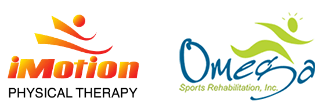Do you work out every day? Working out daily is a wonderful way to maintain good levels of health and keep your body functioning at its optimum levels. It’s important to get some kind of healthy exercise on a daily basis!
Now, answer this question. If you do work out every day, are you stretching properly?
If you’re not stretching before and after your workout, you’re not really taking advantage of a complete workout routine. Stretching exercises are a staple of physical therapy for many reasons.
Did you know there are several specific benefits of stretching both before and after a workout? iMotion Physical Therapy has put together a list of well-kept secrets about the benefits of stretching before and after exercising. If you’re interested in learning how to incorporate healthy stretching into your exercise routine, request an appointment with one of our skilled therapists today!
How does stretching improve overall wellness?
Stress alleviation is just one of many advantages that stretching offers your body.
You might be wondering “How can stretching, something so simple, alleviate stress?” Well, everyday life presents you with several challenges: being on time to pick up the kids from school, performing at your highest level of ability at your job, getting dinner on the table every night… after a while, tension builds up in your muscles and can be stored there.
We know: it’s not like you mean for it to happen! But it does. You’re rushing around trying to stay on top of things in your daily routine, and this kind of stress leads to built-up tension and tight muscles.
Tightness, spasms, and chronic discomforts including headaches and neck pain result. Stress causes cortisone and adrenaline, which are “fight or flight” chemicals, to flood your body.
Your body’s immune function might be suppressed as a result of these abnormalities, making you more susceptible to viruses and other infections. Another serious side effect of continuous stress is hypertension.
Stretching regularly allows you to release this built-up tension and stress. By relaxing and loosening your muscles, you can maintain better control over your blood pressure, avoid chronic pain, and keep your immune system ready for anything.
Different types of pre- and post-workout stretches
There are several different types of stretches a person can do before and after a workout.
It’s important to know which types are right for you and when you should use them in a workout. Three common types are ballistic, dynamic, and static.
- Ballistic. Ballistic stretching involves bouncing movements to push muscles beyond a normal range of motion.
- Dynamic. These are active movements that are not held but still cause muscles to stretch. These are often done to prepare your muscles for movement.
- Static. This involves holding a particular stretch for 10 to 20 seconds. This type of stretch should feel comfortable and is normally done after a workout.
Stretching after your workout
You may be tempted to go straight into relaxation mode after a workout.
It’s important, however, to get in even a few minutes of stretching.
You may have heard of some benefits to stretching after your workout. A couple are as follows:
- Reduces pain and risk of injury. Muscles that stay tight after a workout are more prone to injury. PT in Motion states that the right kind of stretching exercises can limit pain throughout the body. Loosening up your muscles will also reduce your chance of injury.
- Elimination of lactic acid. Lactic acid is produced when you work out. This substance can make muscles achy and tired. Stretching can help reduce the amount of lactic acid throughout your body.
- It helps you relax slowly. It’s beneficial for both body and mind to gradually slow down. When you stretch after a workout you’re giving yourself the chance to gradually wind down.
Stretching before your workout
This may not come as a surprise to you, but you should always start your workout with a series of stretching exercises!
Stretching 5 to 10 minutes is probably enough for most activities. It’s important, however, to adequately stretch all the muscles you’ll be using.
There are several specific advantages you’ll receive when adequately stretching before your workout. A few are:
- More flexibility and an increased range of motion. Correct stretching will loosen your muscles and tendons. This will increase flexibility and range of motion during your workout.
- Improved performance. All of the above; increased blood flow, flexibility, and range of motion, will improve overall performance.
- Better blood flow. The first thing stretching can do is increase your blood flow. Increased blood flow to your muscles prepares them for strenuous activity.
How does physical therapy involve stretching?
It’s important to make sure you’re doing the right kind of stretches before and after your workout.
A physical therapist can put together an exercise routine for your specific type of workout. Whether you’re playing a game of tennis, training for a mini-marathon, or walking through the neighborhood, physical therapy can help you make the most of your activities.
A physical therapist can guide you regarding which types of stretches are the best for your current physical condition and the type of activities you’re participating in.
It’s also important to make sure you’re doing the right exercises in the correct way. You’ll want to make an appointment with a qualified physical therapist to learn what stretches are right for you.
Physical therapy can help you make the most of your workouts and improve your overall health.
Request an appointment today
The appropriate stretches can help you improve your overall health. If you are not sure what stretches are the best fit for before and after your workouts, no worries! Our therapists at iMotion Physical Therapy are here to assist you with determining the best plan of action when it comes to keping yourself healthy and in shape. Contact us today to learn more.
Sources:
- http://www.apta.org/PTinMotion/News/2015/2/10/CochraneNeckPain/
- https://www.apta.org/PTinMotion/News/2019/9/4/CPG/
- http://guidetoptpractice.apta.org/content/1/SEC40.extract
Tags: workout, physical therapy clinic, stretching, Physical Therapy, physical therapist, Health and Wellness, Pain Relief, PT


